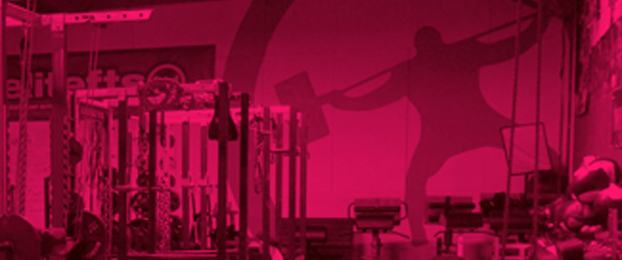
WN: Coach Hale, I’ve just finished reading one of your revisions of the new book, Knowledge and Nonsense: The Science of Nutrition and Exercise. Would you care to enlighten those who don’t have this exclusive access about the general purpose and focus of this incredible book?
JH: The general idea with this book is to present nutrition and exercise facts. The book is presented in a very evidence-based manner. My objective is to educate everyone on the facts regarding nutrition and exercise (by referring to primary research data and quasi-experimentation). This isn’t your typical fitness book promoting some magic formula. I’m going to save consumers a great deal of money by telling them what’s fact and what’s fiction. There are many roads that lead to the same place. Often it’s a matter of just choosing the one that’s best suited for your particular needs. The book is long and detailed and could have actually been broken up into various books. I’m sure readers will enjoy reading it as much as I enjoyed writing it. I learned a great deal while doing my research for this book.
WN: Is there a specific group of individuals this book is marketed for, and if so, would you care to comment on whom?
JH: The book is for anyone who is really interested in separating truth from BS. It will help fitness professionals gain and edge over their competitors by being able to provide their clients with accurate information and it will help fitness enthusiasts make choices that are best suited for their needs. This book takes the guessing out of what to believe or not believe.
WN: Much of the information provided in this book debunks what popular media (i.e. the internet, newspapers, books, late-night TV) would hold to be fact. How do you feel about the notoriety and possibly hatred of yourself that could be spurred by this work?
JH: I feel like it’s time for the world to be exposed to the truth. The truth is a word rarely associated with the fitness industry. I have worked with many people in the industry and have had good and bad experiences. I’ve seen many people working in the industry who began their careers doing good work only to fall victim to the almighty dollar syndrome (syndrome characterized by money before truth).
Nowhere in this book do I launch any personal attacks. I do launch rebuttals against fictional statements. If that offends the promoters of these statements, I’m sorry. They should have conducted better research before they decided to publish these fictional statements.
WN: Do you have any concerns about some people saying that this book promotes a cynical approach to the fitness industry?
JH: No, the only people who will make this claim are those who aren’t willing to look at the truth and those who promote quack science. Fitness skepticism (this includes the health, nutrition, and supplement industries) is an inquiring approach to claims that investigates reason to any and all ideas. Skeptics don’t go into an investigation closed to the possibility that a claim might be true. When I say “skeptical,” I mean that I need to see valid evidence before believing a claim. Cynical, on the other hand, means taking a negative view and not accepting valid evidence for the claim.
WN: Coach Hale, in reading your book, I’ve noticed that you have described a multitude of diets. Would you be willing to elaborate a little more for the readers as to which specific diets you break down?
JH: Some of the diets discussed in the book include the Atkins diet, the South Beach diet, the Zone, the Ornish diet, the Pritikin program, UD2, the Velocity diet, the metabolic typing diet, the XDL Diet, intermittent fasting, and so on. There are approximately 40 diets discussed in this book.
WN: You’ve put together an incredible fact or fiction section regarding both nutrition and fitness. Are there any of these answers that truly shocked you while doing your countless hours of research for this work?
JH: There were some things that surprised me. I, like everyone else, have considered some statements as fact without really looking into their origin. I enhanced my knowledge substantially in writing this book.
WN: It would seem that this book could be considered your “magnum-opus.” Would you care to comment on what this work means to you and your life’s work?
JH: This book is a compilation of my life’s work (26 years in fitness and sports). Some of the information included in it was originally written eight years ago. This book is based on objective information and is meant to provide readers with straightforward facts.
WN: Do you have any final comments? Are there any new projects you’re working on?
JH: I hope everyone enjoys the book. I’m currently working on a few new projects including a series on critical thinking and approaches to gaining knowledge.
Click here to read more about Knowledge and Nonsense: The Science of Nutrition and Exercise








